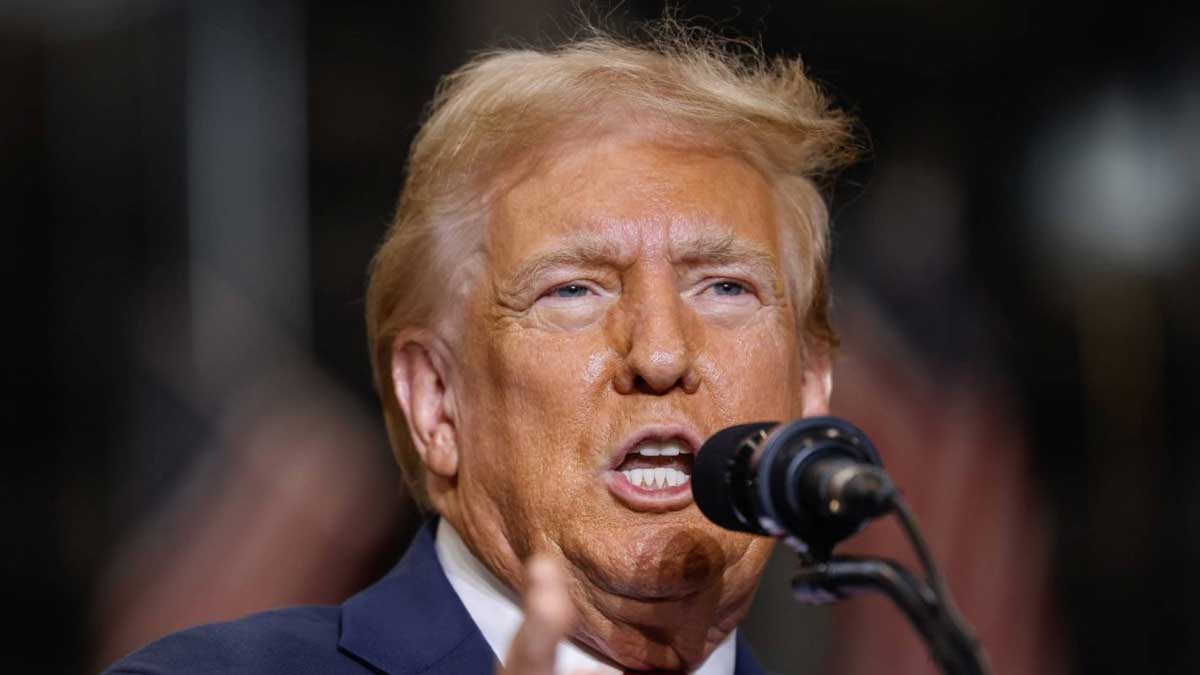- Home
- Billionaires
- Investing Newsletters
- 193CC 1000
- Article Layout 2
- Article Layout 3
- Article Layout 4
- Article Layout 5
- Article Layout 6
- Article Layout 7
- Article Layout 8
- Article Layout 9
- Article Layout 10
- Article Layout 11
- Article Layout 12
- Article Layout 13
- Article Layout 14
- Article Sidebar
- Post Format
- pages
- Archive Layouts
- Post Gallery
- Post Video Background
- Post Review
- Sponsored Post
- Leadership
- Business
- Money
- Small Business
- Innovation
- Shop
Recent Posts
Smith Submits Brief in Trump Election Case; Evidence Sealed

Special Counsel Jack Smith has recently filed a new brief in the federal election case against former President Donald Trump, revealing additional evidence pertaining to his efforts to overturn the 2020 election results. However, as of Friday morning, the contents of this brief remain sealed due to necessary redactions that must be approved before it can be publicly accessed. This latest development comes after the Supreme Court granted Trump a degree of immunity from criminal prosecution, allowing the case to advance in federal district court under U.S. District Judge Tanya Chutkan. She is now tasked with determining which charges, if any, can proceed against Trump.
Judge Chutkan approved Smith’s request to submit a detailed brief outlining the government’s case against Trump, ensuring that all relevant facts are available for her decision-making process. This includes information crucial for potential appeals to higher courts, including the Supreme Court, as Trump is expected to challenge any rulings against him. The brief was filed by the deadline of 5 p.m. on Thursday, with Smith’s office indicating it spans approximately 180 pages. It is said to contain “additional unpled categories of evidence” that the government intends to use during the trial, which includes grand jury transcripts and other significant documentation.
While the brief has been submitted to the court, it has been categorized as containing “Sensitive Material.” This designation means that various parts of the document will require redaction before they can be made available to the public. The process for these redactions is governed by a protective order that mandates approval from both Smith’s office and Trump’s defense team. Smith has indicated that he will propose redactions, which will subsequently be filed for public viewing at the court’s direction.
Key elements deemed sensitive that may require redaction include personally identifiable information, grand jury transcripts, subpoenas, evidence obtained through search warrants, and recordings or transcripts of witness interviews. The full extent of what the public will eventually see from the 180-page brief remains uncertain, as Smith has emphasized the significant amount of sensitive material involved.
Looking ahead, it is anticipated that a redacted version of Smith’s filing could be released by mid-October, following Trump’s lawyers’ objections to the proposed redactions. Trump’s response to the brief is due by October 17. Given the complexities surrounding the charges and the immunity ruling, the timeline for the election case could stretch for an extended period, potentially influencing when the case goes to trial. Additionally, the outcome of the presidential election could have implications for the case, especially if Trump were to regain power and appoint officials who might seek to dismiss the criminal charges against him.
Trump’s legal team has actively opposed Smith’s decision to file the brief, characterizing it as a “180-page false hit piece” that they argue could bias the jury pool. They contend that allowing the brief to be publicized prior to an election is fundamentally unfair, as it presents the government’s allegations against Trump without granting him a timely opportunity to respond. The attorneys have cited a gag order against Trump in their filing, asserting that he should not be restricted from addressing claims made against him during his campaign.
In terms of legal ramifications, the Supreme Court’s ruling on Trump’s immunity asserts that while former presidents cannot be prosecuted for actions taken during their official capacity, they can still face criminal charges for unofficial acts. This leaves it up to Judge Chutkan to determine what falls under the category of “unofficial” acts. Notably, the Supreme Court clarified that Trump cannot be charged for pressuring Department of Justice officials to contest the election results, and the updated indictment against him reflects this, characterizing his post-election actions as those of a private citizen rather than as president.
Surprisingly, Trump’s lawyers have also claimed that the timing of Smith’s filing violates Department of Justice (DOJ) protocols, which discourage significant actions close to an election. They reference a federal statute that prohibits prosecutors from timing actions to influence electoral outcomes, alongside the informal DOJ “60-day rule.” However, legal experts have largely rebutted this argument, stating that these policies are applicable only during ongoing investigations and lose their relevance once a case is charged and in court.
As it stands, Trump faces four federal felony charges related to the election case, broadly accusing him of unlawfully attempting to reverse the 2020 election results. The updated indictment outlines various actions taken by Trump and his associates, including pressuring state officials and legislators, coercing then-Vice President Mike Pence to reject electoral certification, exploiting the January 6 Capitol attack to halt Congressional proceedings, and orchestrating the “fake elector” scheme where false elector slates were submitted to Congress.
This federal election case is one of four criminal proceedings against Trump, with only one having reached trial thus far, resulting in a guilty verdict. Trump’s defense has successfully delayed proceedings in two other cases, including ongoing appeals regarding charges related to efforts to overturn the election in Georgia. A federal judge dismissed separate allegations concerning Trump’s handling of White House documents, a decision Smith is currently appealing.
As developments unfold, the trajectory of Trump’s federal election case will hinge not only on the legal proceedings but also on the broader political landscape as the next presidential election approaches.
Recent Posts
Categories
- 193 Countries Consortium Partner1
- 193cc Digital Assets2
- 5G1
- Aerospace & Defense48
- AI37
- Arts3
- Banking & Insurance11
- Big Data3
- Billionaires1,487
- Boats & Planes1
- Business332
- Careers13
- Cars & Bikes79
- CEO Network1
- CFO Network17
- CHRO Network1
- CIO Network1
- Cloud10
- CMO Network18
- Commercial Real Estate7
- Consultant1
- Consumer Tech194
- CxO1
- Cybersecurity73
- Dining1
- Diversity, Equity & Inclusion4
- Education7
- Energy8
- Enterprise Tech29
- Events11
- Fintech1
- Food & Drink2
- Franchises1
- Freelance1
- Future Of Work2
- Games149
- GIG1
- Healthcare79
- Hollywood & Entertainment203
- Houses1
- India’s 1000 Richest1
- Innovation46
- Investing2
- Investing Newsletters4
- Leadership65
- Lifestyle11
- Manufacturing1
- Markets20
- Media327
- Mobile phone1
- Money13
- Personal Finance2
- Policy569
- Real Estate1
- Research6
- Retail1
- Retirement1
- Small Business1
- SportsMoney42
- Style & Beauty1
- Success Income1
- Taxes2
- Travel10
- Uncategorized14
- Vices1
- Watches & Jewelry2
- world's billionaires1,456
- Worlds Richest Self-Made Women2
Related Articles
South Korea Plane Crash: A Tragic Loss and Global Mourning
The tragic plane crash at South Korea’s Muan International Airport on Sunday...
By 193cc Agency CouncilDecember 30, 2024H-1B Visa Debate Splits Trump Allies and Silicon Valley
The debate over H-1B visas has once again become a contentious issue,...
By 193cc Agency CouncilDecember 28, 2024Trump Moves $4B Stake in Truth Social Parent, Stock Drops 6%
Donald Trump recently transferred his 57% stake in Trump Media & Technology...
By 193cc Agency CouncilDecember 20, 2024House Rejects Trump-Backed Funding Bill, Shutdown Looms
The U.S. House of Representatives rejected a new government funding bill on...
By 193cc Agency CouncilDecember 20, 2024















Leave a comment